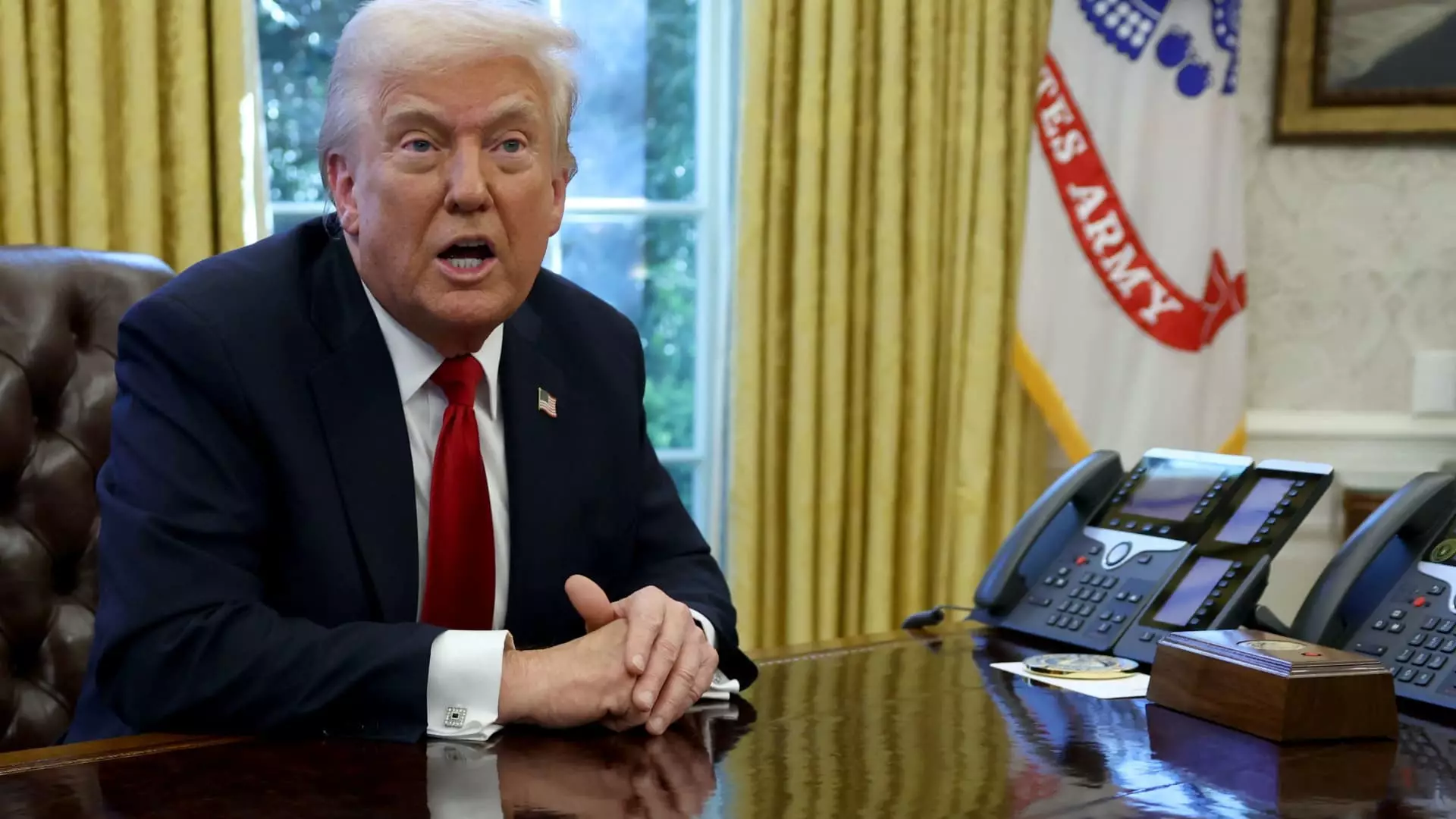In a surprising twist to the ongoing trade dialogue between the United States and the rest of the world, President Donald Trump recently declared a sweeping 25% tariff on all vehicles not manufactured on U.S. soil. This move, deeply rooted in nationalist economic policies, is designed to incentivize domestic production at a time when the automotive landscape is rapidly evolving. However, the implications of such a tariff are complex and multifaceted, impacting not just foreign automakers but also domestic giants such as Tesla, which has forged a unique alliance with Trump amidst this heated political climate.
Elon Musk’s Strategic Position
Elon Musk, a figure who embodies the modern intersection of technology and business, serves as an unofficial senior advisor to Trump. This is a relationship fortified by Musk’s significant financial contributions to Trump’s campaign—over $290 million aimed at boosting the administration’s policies that often seem to benefit his companies directly. However, Trump’s assertion that Musk has not publicly weighed in on the tariff decision due to a perceived conflict of interest casts a shadow over their partnership. In essence, Musk is walking a tightrope, balancing his obligations to his massive enterprises, including Tesla and SpaceX, against the expectations of the administration.
Musk’s dual roles raise crucial questions about governance, oversight, and the integrity of advisory positions. As he also spearheads the Department of Government Efficiency (DOGE), dedicated to streamlining federal operations, it seems that he is intricately linked to the very decisions that could impact his businesses. This could lead to a populace wondering whether these actions ultimately serve the public interest or merely bolster Musk’s private enterprises.
The Economic Ripple Effects
The immediate impact of Trump’s tariff announcement is likely to send shockwaves through the auto industry. While Trump optimistically stated that these tariffs might be “net neutral or even good” for companies like Tesla, industry insiders understand the reality is far less clear-cut. Tesla itself has communicated concerns to the U.S. Trade Representative, highlighting that sourcing certain components domestically remains a significant challenge. These tariffs could heighten production costs and tighten supply chains, ultimately affecting prices for consumers and the profitability of automobile manufacturers across the board.
Moreover, the presence of major competitors—both established automakers pivoting towards electric vehicles and emerging players like BYD from China—creates a challenging atmosphere for Tesla. While Trump’s tariffs might theoretically protect domestic manufacturers, they could inadvertently disadvantage U.S. companies that rely on a global supply chain to compete effectively. Should these tariffs inhibit Tesla’s ability to procure necessary parts, it could hinder their production schedules and innovation efforts at a time when they are striving to maintain an edge in a fiercely competitive market.
The Role of Public Perception
As tariffs shake the foundation of the automotive landscape, public perception will play a pivotal role in shaping the ramifications of this policy. The spectacle of Trump transforming the South Lawn of the White House into a temporary Tesla showroom, complimenting the designs of Tesla’s futuristic Cybertruck, was a poignant image designed to elevate both men in the public eye. However, as the reality of these tariffs unfolds, the initial glitz may wear thin against tangible economic shifts. Share prices of automakers, including Tesla, experienced slight declines following the tariff news, revealing investor anxiety about the future profitability in an increasingly uncertain environment.
Furthermore, the intertwining of economic policy with personal political relationships raises ethical and operational questions that cannot be ignored. The public is keenly aware of how these intertwined roles could lead to favoritism or unfair advantages, influencing the nature of competition within the auto industry.
In a world driven increasingly by stakeholder capitalism, the intersection of politics and business as felt through the lens of Trump’s tariff policy and Musk’s positioning offers both intrigue and caution. As the automotive and political arenas continue to evolve, all eyes will be on the potential crash course between populist tariffs and innovative domestic business models.

